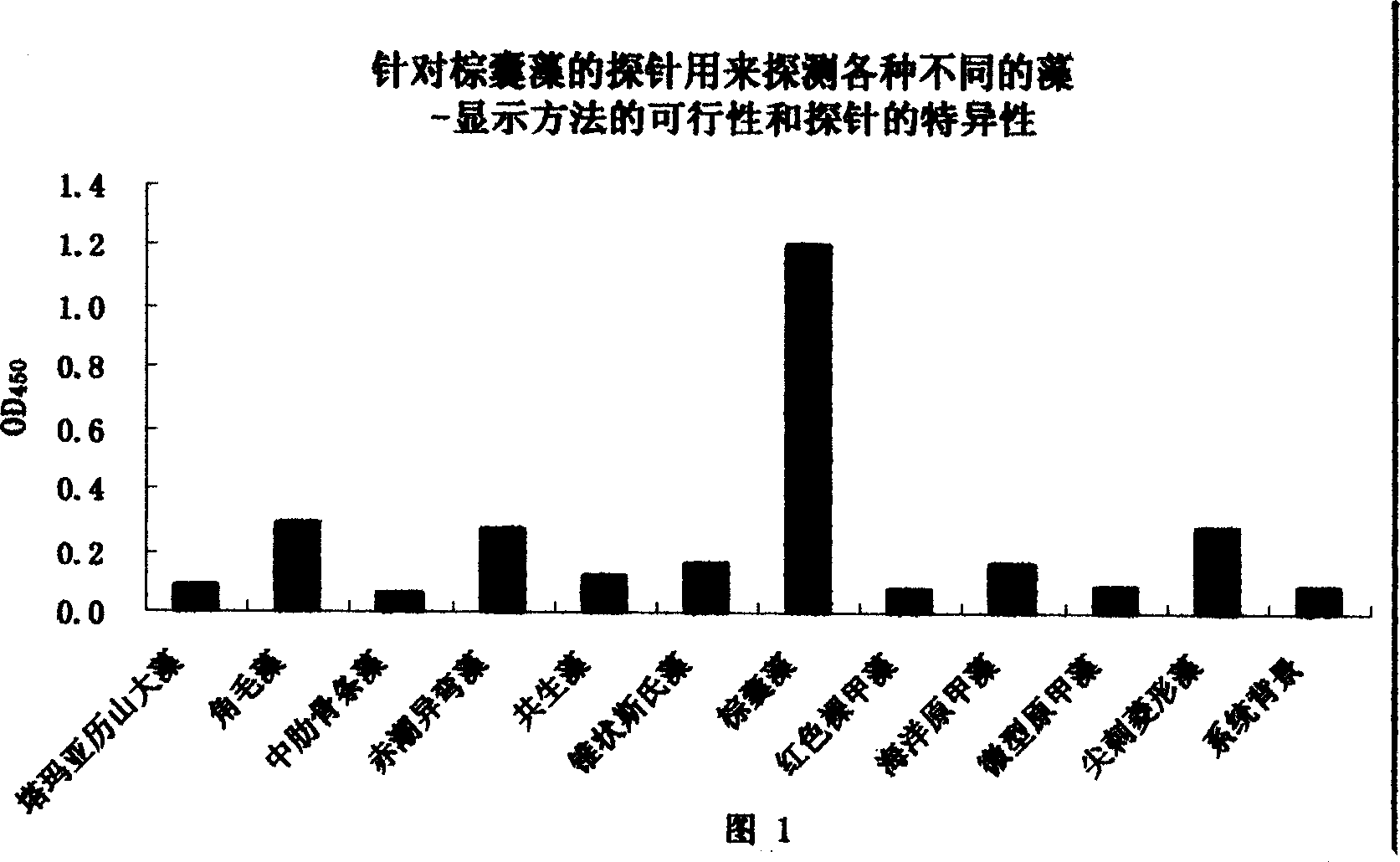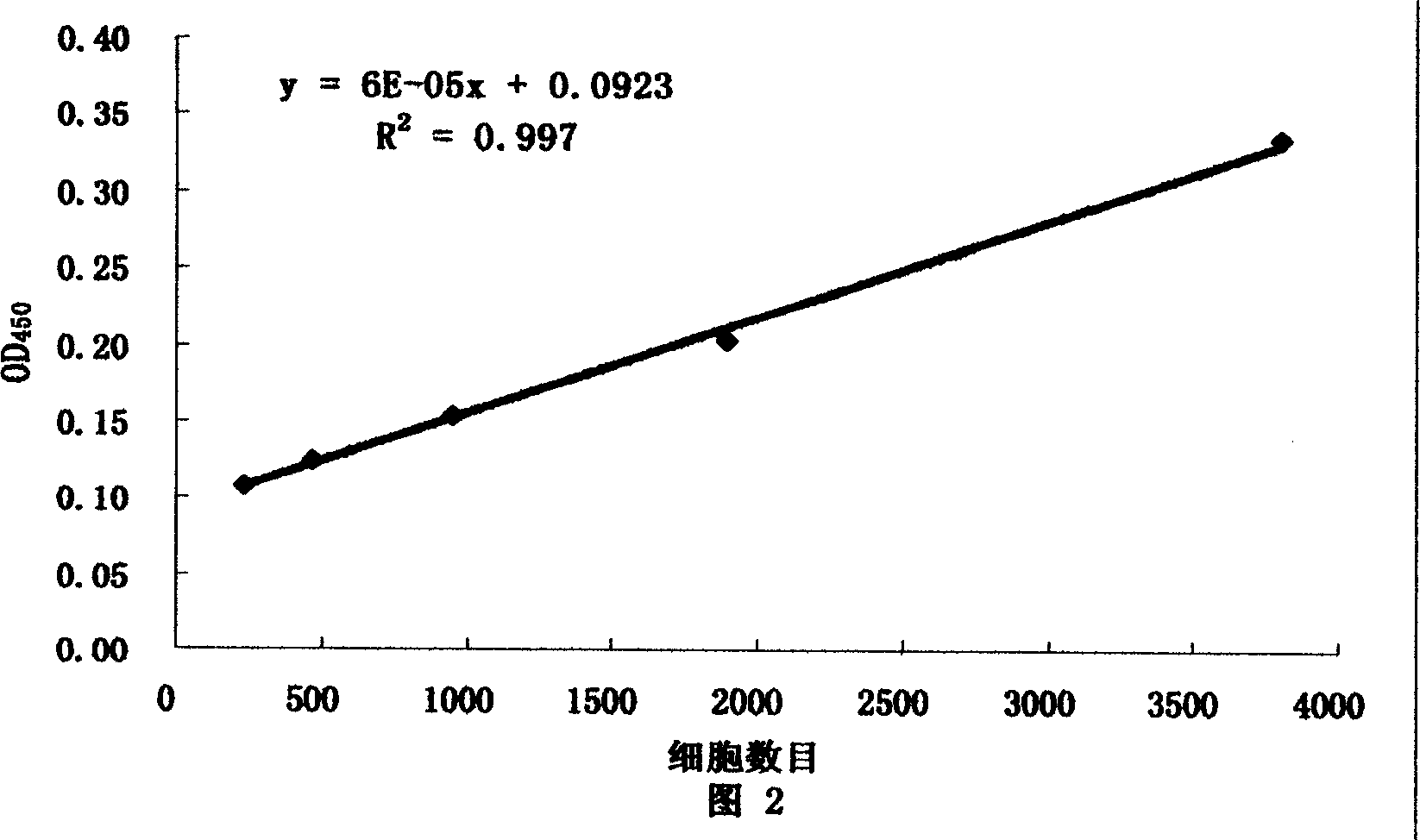Detection probe of phaeocystis
A technology for detecting probes and Phaeocystis algae, which is applied in the field of oligonucleotide probes and specific probes, can solve the problems of large fluctuation of detection results, difficult operation, and small number of capture probes, and achieves convenient search. and realization, the effect of good probe applicability and high stability
- Summary
- Abstract
- Description
- Claims
- Application Information
AI Technical Summary
Problems solved by technology
Method used
Image
Examples
Embodiment
[0030] Example: Qualitative and quantitative detection of Phaeocystis using S1 enzyme protection analysis for rRNA and sandwich hybridization technology
[0031] In this example, the combination of S1 enzyme protection analysis technology and sandwich hybridization technology is used to realize the qualitative and quantitative detection of marine red tide organism Phaeocystis sp., and the steps are as follows:
[0032] 1.1 Search for specific regions of Phaeocystis rRNA and design and synthesis of S1 enzyme protection assay probes
[0033] By determining the 18S rRNA sequence of the ribosomal small subunit of Phaeocystis and comparing it with the rRNA sequences of other algae, it was found that the 210-280 region of the small subunit rRNA was different from other algae, and the sequence of this region was determined to be a characteristic sequence; The S1 enzyme protection analysis probe ZN_S1 was designed and synthesized according to the characteristic sequence: 5'-CGATTCGAGC...
PUM
 Login to View More
Login to View More Abstract
Description
Claims
Application Information
 Login to View More
Login to View More - R&D
- Intellectual Property
- Life Sciences
- Materials
- Tech Scout
- Unparalleled Data Quality
- Higher Quality Content
- 60% Fewer Hallucinations
Browse by: Latest US Patents, China's latest patents, Technical Efficacy Thesaurus, Application Domain, Technology Topic, Popular Technical Reports.
© 2025 PatSnap. All rights reserved.Legal|Privacy policy|Modern Slavery Act Transparency Statement|Sitemap|About US| Contact US: help@patsnap.com


